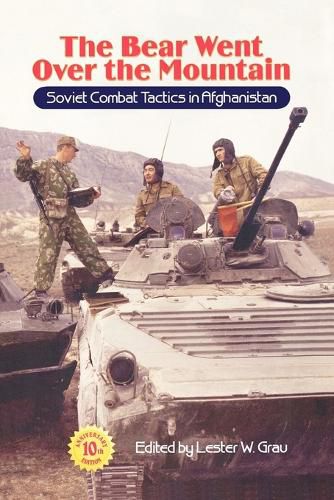Readings Newsletter
Become a Readings Member to make your shopping experience even easier.
Sign in or sign up for free!
You’re not far away from qualifying for FREE standard shipping within Australia
You’ve qualified for FREE standard shipping within Australia
The cart is loading…






This title is printed to order. This book may have been self-published. If so, we cannot guarantee the quality of the content. In the main most books will have gone through the editing process however some may not. We therefore suggest that you be aware of this before ordering this book. If in doubt check either the author or publisher’s details as we are unable to accept any returns unless they are faulty. Please contact us if you have any questions.
This rare 10th anniversary edition (published in 2007) contains a new introduction by expert Soviet historian David M. Glantz. In addition all maps and graphics have been enhanced from the 1996 edition. When the Soviet Union decided to invade Afghanistan, they evaluated their chances for success upon their experiences in East Germany, Hungary and Czechoslovakia. Unfortunately for their soldiers, as well as the people of Afghanistan, they ignored not only the experiences of the British in the same region, but also their own experience with the Basmachi resistance fighters in Central Asia from 1918-1933. Consequently, in Afghanistan the Soviet army found its tactics inadequate to meet the challenges posed by the difficult terrain and the highly motivated mujahideen freedom fighters. To capture the lessons their tactical leaders learned in Afghanistan and to explain the change in tactics that followed, the Frunze Military Academy compiled this book for their command and general staff combat arms officers. The lessons are valuable not just for Russian officers, but for the tactical training of platoon, company and battalion leaders of any nation likely to engage in conflicts involving civil war, guerrilla forces and rough terrain. This is a book dealing with the starkest features of the unforgiving landscape of tactical combat: casualties and death, adaptation, and survival. (From the original foreword by Hans Binnendijk, 1996)
$9.00 standard shipping within Australia
FREE standard shipping within Australia for orders over $100.00
Express & International shipping calculated at checkout
This title is printed to order. This book may have been self-published. If so, we cannot guarantee the quality of the content. In the main most books will have gone through the editing process however some may not. We therefore suggest that you be aware of this before ordering this book. If in doubt check either the author or publisher’s details as we are unable to accept any returns unless they are faulty. Please contact us if you have any questions.
This rare 10th anniversary edition (published in 2007) contains a new introduction by expert Soviet historian David M. Glantz. In addition all maps and graphics have been enhanced from the 1996 edition. When the Soviet Union decided to invade Afghanistan, they evaluated their chances for success upon their experiences in East Germany, Hungary and Czechoslovakia. Unfortunately for their soldiers, as well as the people of Afghanistan, they ignored not only the experiences of the British in the same region, but also their own experience with the Basmachi resistance fighters in Central Asia from 1918-1933. Consequently, in Afghanistan the Soviet army found its tactics inadequate to meet the challenges posed by the difficult terrain and the highly motivated mujahideen freedom fighters. To capture the lessons their tactical leaders learned in Afghanistan and to explain the change in tactics that followed, the Frunze Military Academy compiled this book for their command and general staff combat arms officers. The lessons are valuable not just for Russian officers, but for the tactical training of platoon, company and battalion leaders of any nation likely to engage in conflicts involving civil war, guerrilla forces and rough terrain. This is a book dealing with the starkest features of the unforgiving landscape of tactical combat: casualties and death, adaptation, and survival. (From the original foreword by Hans Binnendijk, 1996)